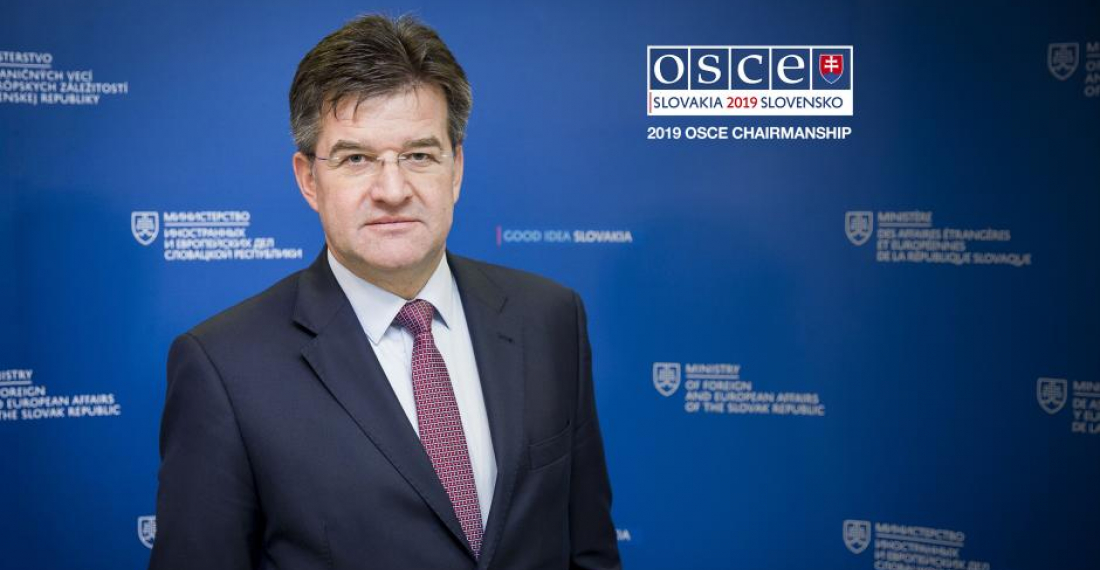Slovakia has taken over the chairmanship of the Organisation for Security and Co-operation in Europe (OSCE)for 2019. Slovak Minister of Foreign and European Affairs Miroslav Lajcak has assumed the role of Chairman-in-Office of the organisation.
The Slovak Chairmanship will focus on three areas for action in 2019: preventing, mediating and mitigating conflict while focusing on the people it affects; providing for a safer future; and promoting effective multilateralism. Lajcak will present Slovakia's priorities to the OSCE Permanent Council on 10 January in Vienna.
The last decade has been a difficult one for the OSCE, with some even questioning the very existence of the organisation. It got a new lease of life after it played a role in stabilising the situation in Eastern Ukraine when fighting flared up there in 2014. It currently deploys a large and expensive monitoring mission in Eastern Ukraine.
During its one year term at the head of the OSCE Slovakia will prioritise efforts to prevent new conflicts from breaking out, while mitigating the humanitarian consequences of existing ones.
"Overall, Slovakia will dedicate its Chairmanship to bringing the OSCE closer to the people it is working for. We are determined to promote gender mainstreaming throughout the OSCE's work. And we aim to improve people's safety and security" Lajcak said in a message issued at the start of the chairmanship. "The Slovak 2019 OSCE Chairmanship aims to be ambitious in promoting dialogue, trust and stability in the OSCE area, and in supporting the good functioning of the organization. But we also have to be realistic: challenges and complexities are rife. Any further deterioration in the safety and lives of people in our societies is unjustifiable", the Slovak Minister said.
source: commonspace.eu with osce.org







